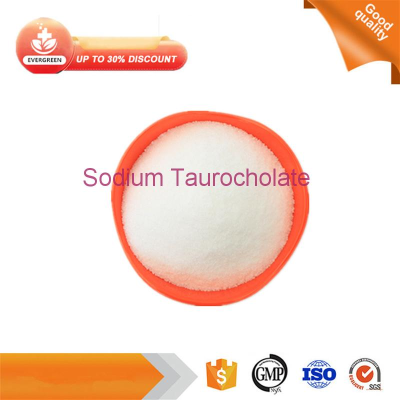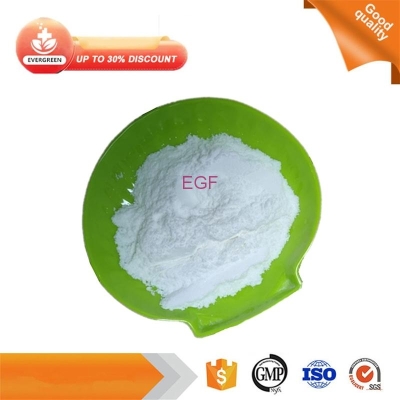-
Categories
-
Pharmaceutical Intermediates
-
Active Pharmaceutical Ingredients
-
Food Additives
- Industrial Coatings
- Agrochemicals
- Dyes and Pigments
- Surfactant
- Flavors and Fragrances
- Chemical Reagents
- Catalyst and Auxiliary
- Natural Products
- Inorganic Chemistry
-
Organic Chemistry
-
Biochemical Engineering
- Analytical Chemistry
- Cosmetic Ingredient
-
Pharmaceutical Intermediates
Promotion
ECHEMI Mall
Wholesale
Weekly Price
Exhibition
News
-
Trade Service
This article was originally written by Translational Medicine.
Please indicate the source Author: Jasmine Introduction: Although antibiotics are known to destroy and alter the diversity of gut microbes, it is unclear how antibiotic-associated diarrhea develops
.
Antibiotic-associated diarrhea can sometimes be severe enough to lead to premature discontinuation of antibiotics, and it has also been shown to prolong hospital stays, increase the risk of other infections, and lead to increased healthcare costs
.
Therefore, antibiotic-associated diarrhea has important clinical implications, and a better understanding of its underlying mechanisms and drivers is needed in order to develop therapeutic strategies to minimize its occurrence
.
A joint study by Singapore General Hospital (SGH) and the Singapore-MIT Alliance for Research and Technology (SMART) has identified the cause of diarrhea in some patients after taking the antibiotic amoxicillin-clavulanate potassium (Augmentin)
.
Amoxicillin-clavulanate potassium is a widely used antibiotic used to treat many infections, including pneumonia and urinary tract infections
.
The team found that levels of a family of bacteria that play an important role in maintaining gut health, Ruminococcus, were highly correlated with antibiotic-associated diarrhea
.
The study, published in iScience, is titled: "Gut Ruminococcaceae levels at baseline correlate with risk of antibiotic-associated diarrhea" https://doi.
org/10.
1016/j.
isci.
2021.
103644 For patients with potassium retinoic acid, this problem is very real
.
Although amoxicillin-clavulanate potassium is an effective and affordable antibiotic for treating infections, it can cause diarrhea in them
.
Understanding why can help us understand the risk of antibiotic-associated diarrhea and develop future treatment strategies to minimize or avoid such side effects
.
” said Dr Shirin Kalimuddin, Consultant, Department of Infectious Diseases, Singapore General Hospital and principal participant in the study
.
A total of 30 volunteers were recruited for the study, each of whom received oral amoxicillin-clavulanate potassium for three days.
Course of treatment
.
The researchers collected stool samples from volunteers on set dates for four consecutive weeks and analyzed them using gene sequencing to look for changes in the gut microbiota during the study period
.
The results showed that no matter whether they were receiving amoxicillin-clavulanate potassium treatment Before and during treatment, the levels of ruminococcus in the stool of volunteers with diarrhea were significantly lower than those without diarrhea
.
That is, whether an individual is susceptible to antibiotic-associated diarrhea has a lot to do with gut composition
.
The team A simple polymerase chain reaction (PCR) test was further devised to test levels of Faecalibacterium praezeii (Rumococcus family)
.
This technique has the potential to be used in the clinic to rapidly determine the use of amoxicillin- Risk of Diarrhea in Patients Treated with Potassium Clavulanate
.
Graphical Abstract "A lot of attention has been paid to how DNA affects a person's response to drugs, but the impact of the gut microbiome on drug response has not been extensively studied
.
Our findings demonstrate that a person's gut microbiome composition is highly correlated with their likelihood of developing antibiotic-associated diarrhea
.
"Professor Alm added
.
Globally, one in three patients taking amoxicillin-clavulanate potassium will experience diarrhea
.
In some cases, their diarrhoea can be so severe that doctors have to stop antibiotics prematurely, leading to undertreatment of the infection, or switching to another antibiotic that is more likely to be expensive or that can only be given intravenously
.
In addition, diarrhea may prolong a patient's hospital stay, thereby increasing the risk of other infections
.
"People respond differently to drugs, and understanding that response and predicting high-risk The capacity of the population will help guide the development of point-of-care diagnostics
.
" The team now hopes to conduct a clinical trial to see if certain bacteria from the Ruminococcus family can be used as probiotics to prevent diarrhea in patients receiving antibiotics
.
Reference: https://medicalxpress.
com/news/2022-02-antibiotics-associated-diarrhea.
html Note: This article aims to introduce the progress of medical research and cannot be used as a reference for treatment plans
.
For health guidance, please go to a regular hospital for treatment
.
Recommendation·Events The First Yangtze River Delta Single Cell Omics Technology Application Forum [Webinar] Synthetic Biology Innovation and Development Popularity·Articles Stem Cell Research [Nature Sub-Journal] Using Stem Cells to Regenerate the Heart! Gene sequencing [Nature sub-journal] Analysis of 2658 complete DNA sequences - providing new clues for cancer mutations Cancer research [Science sub-journal] Will "lactic acid" help cancer cells? Studies have found that specific enzymes can fight it! Single-cell omics [guest announcement] The first Yangtze River Delta single-cell omics technology forum will be held in Shanghai in early March.
The second issue of precision medicine "Precision Medicine" is coming! What kind of sparks can CAR-T and MRD collide with? Big coffee gathered to explain to you! Detection and diagnosis [Nature sub-journal] Fudan University Wei Dacheng's team and academician Liu Yunqi have developed an ultra-high-sensitivity detection portable device that can produce results in 4 minutes! PCR detection or be replaced!
Please indicate the source Author: Jasmine Introduction: Although antibiotics are known to destroy and alter the diversity of gut microbes, it is unclear how antibiotic-associated diarrhea develops
.
Antibiotic-associated diarrhea can sometimes be severe enough to lead to premature discontinuation of antibiotics, and it has also been shown to prolong hospital stays, increase the risk of other infections, and lead to increased healthcare costs
.
Therefore, antibiotic-associated diarrhea has important clinical implications, and a better understanding of its underlying mechanisms and drivers is needed in order to develop therapeutic strategies to minimize its occurrence
.
A joint study by Singapore General Hospital (SGH) and the Singapore-MIT Alliance for Research and Technology (SMART) has identified the cause of diarrhea in some patients after taking the antibiotic amoxicillin-clavulanate potassium (Augmentin)
.
Amoxicillin-clavulanate potassium is a widely used antibiotic used to treat many infections, including pneumonia and urinary tract infections
.
The team found that levels of a family of bacteria that play an important role in maintaining gut health, Ruminococcus, were highly correlated with antibiotic-associated diarrhea
.
The study, published in iScience, is titled: "Gut Ruminococcaceae levels at baseline correlate with risk of antibiotic-associated diarrhea" https://doi.
org/10.
1016/j.
isci.
2021.
103644 For patients with potassium retinoic acid, this problem is very real
.
Although amoxicillin-clavulanate potassium is an effective and affordable antibiotic for treating infections, it can cause diarrhea in them
.
Understanding why can help us understand the risk of antibiotic-associated diarrhea and develop future treatment strategies to minimize or avoid such side effects
.
” said Dr Shirin Kalimuddin, Consultant, Department of Infectious Diseases, Singapore General Hospital and principal participant in the study
.
A total of 30 volunteers were recruited for the study, each of whom received oral amoxicillin-clavulanate potassium for three days.
Course of treatment
.
The researchers collected stool samples from volunteers on set dates for four consecutive weeks and analyzed them using gene sequencing to look for changes in the gut microbiota during the study period
.
The results showed that no matter whether they were receiving amoxicillin-clavulanate potassium treatment Before and during treatment, the levels of ruminococcus in the stool of volunteers with diarrhea were significantly lower than those without diarrhea
.
That is, whether an individual is susceptible to antibiotic-associated diarrhea has a lot to do with gut composition
.
The team A simple polymerase chain reaction (PCR) test was further devised to test levels of Faecalibacterium praezeii (Rumococcus family)
.
This technique has the potential to be used in the clinic to rapidly determine the use of amoxicillin- Risk of Diarrhea in Patients Treated with Potassium Clavulanate
.
Graphical Abstract "A lot of attention has been paid to how DNA affects a person's response to drugs, but the impact of the gut microbiome on drug response has not been extensively studied
.
Our findings demonstrate that a person's gut microbiome composition is highly correlated with their likelihood of developing antibiotic-associated diarrhea
.
"Professor Alm added
.
Globally, one in three patients taking amoxicillin-clavulanate potassium will experience diarrhea
.
In some cases, their diarrhoea can be so severe that doctors have to stop antibiotics prematurely, leading to undertreatment of the infection, or switching to another antibiotic that is more likely to be expensive or that can only be given intravenously
.
In addition, diarrhea may prolong a patient's hospital stay, thereby increasing the risk of other infections
.
"People respond differently to drugs, and understanding that response and predicting high-risk The capacity of the population will help guide the development of point-of-care diagnostics
.
" The team now hopes to conduct a clinical trial to see if certain bacteria from the Ruminococcus family can be used as probiotics to prevent diarrhea in patients receiving antibiotics
.
Reference: https://medicalxpress.
com/news/2022-02-antibiotics-associated-diarrhea.
html Note: This article aims to introduce the progress of medical research and cannot be used as a reference for treatment plans
.
For health guidance, please go to a regular hospital for treatment
.
Recommendation·Events The First Yangtze River Delta Single Cell Omics Technology Application Forum [Webinar] Synthetic Biology Innovation and Development Popularity·Articles Stem Cell Research [Nature Sub-Journal] Using Stem Cells to Regenerate the Heart! Gene sequencing [Nature sub-journal] Analysis of 2658 complete DNA sequences - providing new clues for cancer mutations Cancer research [Science sub-journal] Will "lactic acid" help cancer cells? Studies have found that specific enzymes can fight it! Single-cell omics [guest announcement] The first Yangtze River Delta single-cell omics technology forum will be held in Shanghai in early March.
The second issue of precision medicine "Precision Medicine" is coming! What kind of sparks can CAR-T and MRD collide with? Big coffee gathered to explain to you! Detection and diagnosis [Nature sub-journal] Fudan University Wei Dacheng's team and academician Liu Yunqi have developed an ultra-high-sensitivity detection portable device that can produce results in 4 minutes! PCR detection or be replaced!







